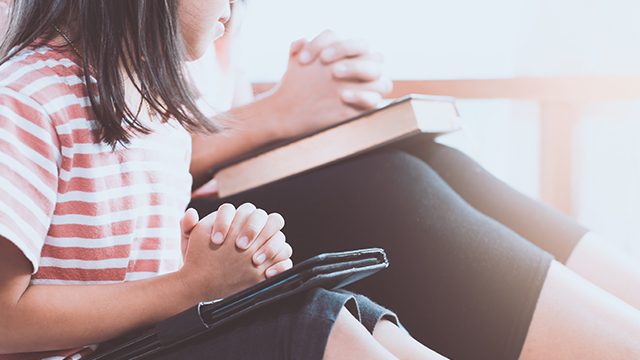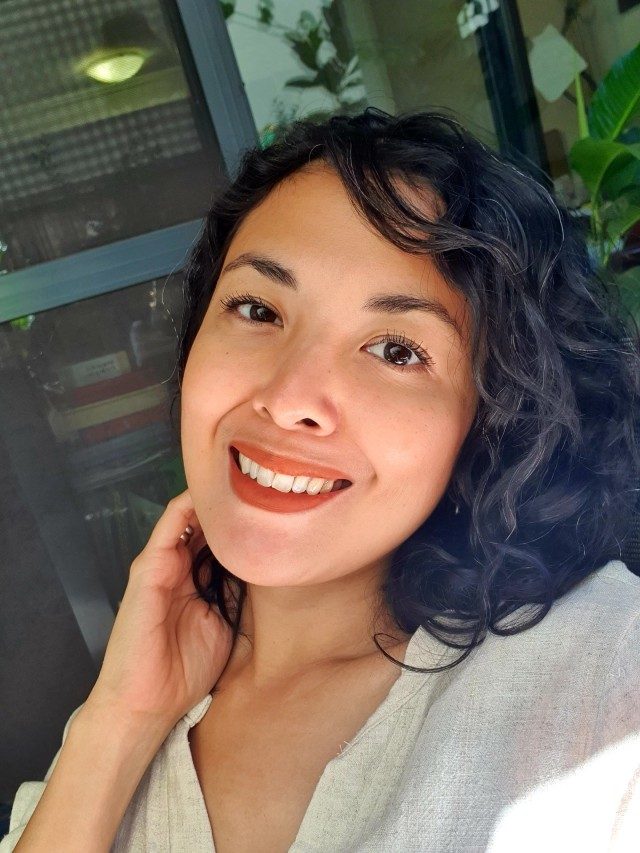SUMMARY
This is AI generated summarization, which may have errors. For context, always refer to the full article.

“Will I die, Mama? Will you die?”
I didn’t think the big questions would come so early, but at the age of 3, my child is already asking questions about death. I have never spoken of it to her, but in the midst of a pandemic, how could she not pick up on it?
Her questions strike cold fear in my heart. Friends of friends have died in the past two weeks. I’ve lain awake many nights with my dark thoughts and even asked my husband whether we should get serious about writing a will.
But for my child’s sake, I smile, remain composed and open my mouth to answer her questions like a real, professional grown-up and… nothing comes out. I’m unqualified. Even my university philosophy oral examinations, where my professor spent 20 minutes grilling me on Nietzsche, were easier than this.
But her questions don’t stop. “Who makes us die, mama?”
I almost answer “God,” but don’t. I’ve held off introducing the concept of god to her because I don’t know which version she should meet first: Loving savior? Punisher? Formless nothing?
I was raised in a Catholic school run by nuns, which had the ironic effect of turning me into an agnostic adult. And while I’m not anti-Catholicism, I don’t want my child’s earliest concept of a higher power to be from a Catechism textbook: impersonal, institutionalized, and solidly patriarchal.
“What happens after we die, Mama?”
“Heaven” is another textbook answer I grew up with, but I also have problem with this. I’m not entirely set on pushing the whole heaven-hell dichotomy on my kid. The older I become, the more adverse I am to the idea of a god obsessed with reward and punishment in the afterlife.
My kid doesn’t know that she’s stirring up a storm, that her questions are effectively forcing their way into my innermost chamber where I keep a locked box containing my most personal beliefs about god and death. For the first time in decades, I’m forced to open the box and sort through the mess. Holding them up to the light, I’m surprised to find that my beliefs are wispy, none of them taking on a definite shape. Through the years, they’ve thinned out to something like “I don’t know, and I can’t know, so let’s not think about it.”
But I know an answer like that simply isn’t be good enough for her enquiring mind.
When my daughter is older, she can choose her own beliefs. But right now, she is looking to me for something to believe in. For years, I’ve chosen to believe in nothing. But in the shadow of coronavirus, when even just going to a grocery store feels like brushing fingertips with death, I find myself searching for something I can believe in as well.
God and death will always be unknowable, but her questions are valid and real. I feel a huge responsibility to give her the best answers, one that neither belittles her nor goes into dogma. I decide I that I want to introduce my daughter to the most loving god possible, and that I will only tell her things that resonate as true to myself. Also, I will use only words and ideas that she can fully understand here and now.
I tread gently.
“When we die,” I say, “we go to the God-mama. She’s everyone’s mama. She’s your mama and my mama, too. And She loves us so much, and when we die, we can go and live in Her house.”
It will not always be so, but right now, “mama” is the center of her small universe, the ultimate embodiment of love, safety, and protection. Later, when she is no longer so attached to me, she may come across many more personifications of a divine power — both beautiful and terrible — in the course of her journey.
Still, I wonder if the idea sticks or resonates. I receive an answer a few weeks later after we lose a loved one to COVID-19. “Don’t worry, mama. The God-mama is taking care of her,” says my daughter. The words are strangely reassuring coming from out of the mouths of babes. – Rappler.com

Ala Paredes is a Sydney-based visual artist, writer, teacher and soon-to-be mother of two. She is painfully trying to give birth to her first novel. Her favourite tool of procrastination is the ukulele.
Add a comment
How does this make you feel?
There are no comments yet. Add your comment to start the conversation.